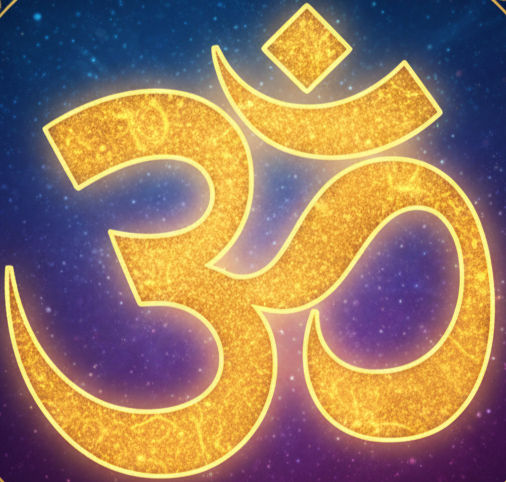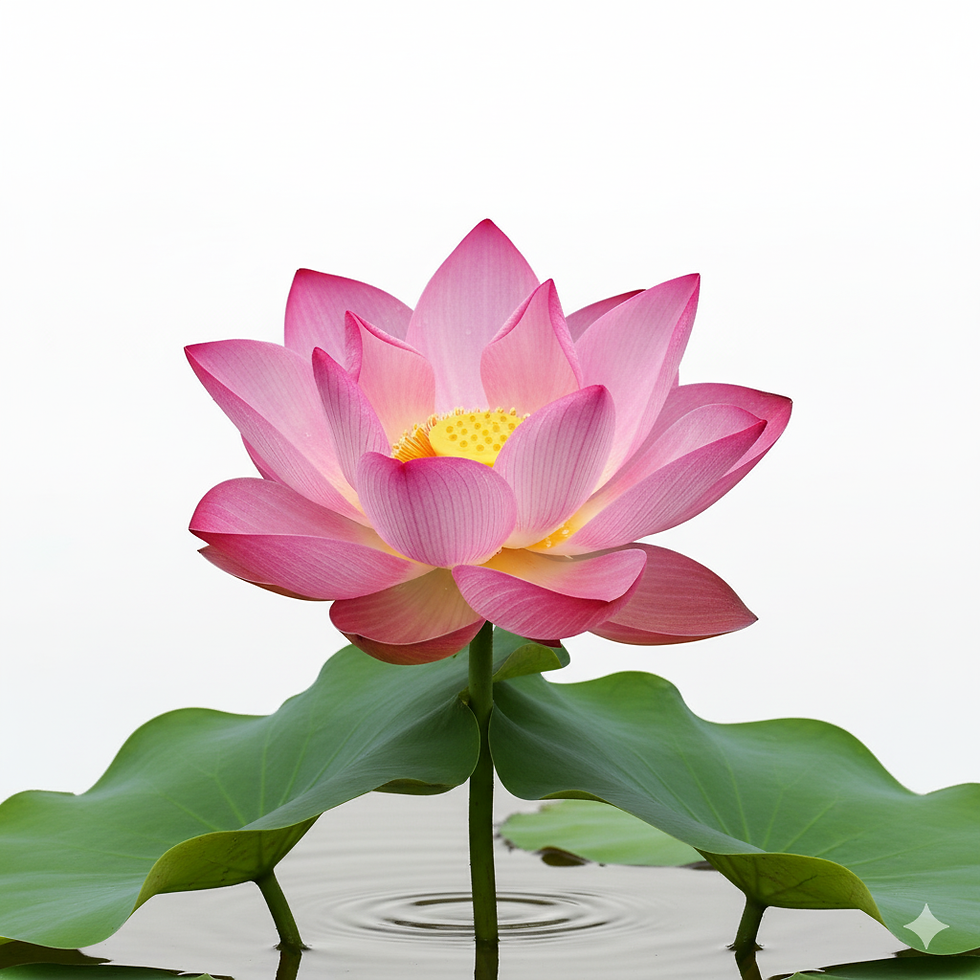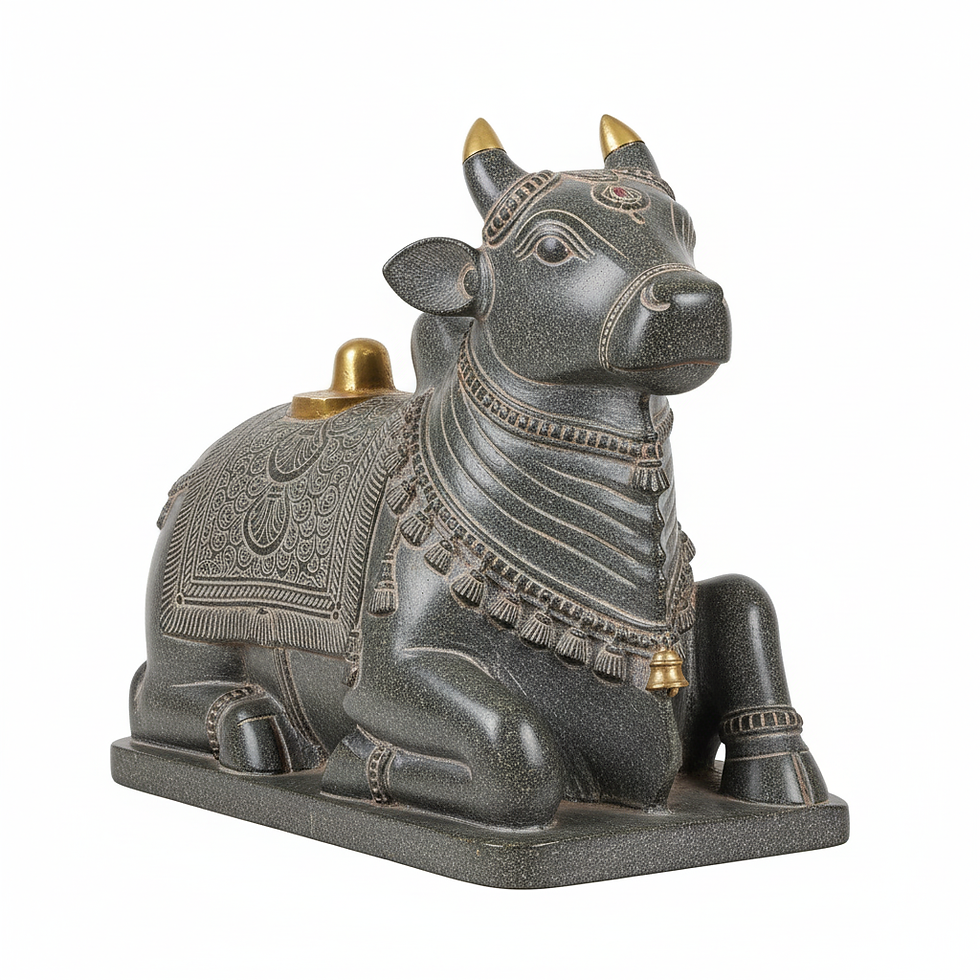Special Hindu Religious Symbols and their Significance
- myNachiketa
- Oct 1, 2025
- 3 min read

Have you ever wondered why some symbols are so special in Hinduism? These symbols are like secret keys that unlock the doors to understanding the universe and our place in it. Each symbol carries a beautiful story and a deep meaning that helps us connect with God and the world around us. So, let’s embark on a journey together to discover these fascinating symbols and their significance!

Let’s start with the most famous symbol of all—Om! You might have heard this sound at the beginning of meditation or prayers. Om is not just a sound; it is the essence of everything in the universe! It reminds us of creation, preservation, and destruction, which are essential parts of life.
Significance
When you chant Om, you feel yourself connected to the divine. Om is also the sound that brings peace, harmony, and balance to life.
2. Swastika (स्वस्तिक) – A Symbol of Wisdom and Prosperity

The swastika is a Hindu religious symbol that represents good fortune and prosperity. It's four arms, the four Vedas—Rig Veda, Sama Veda, Yajur Veda, and Atharva Veda. The Vedas contain the ancient books of Wisdom, which contain the knowledge of God and Self.
Significance You can see the Swastika drawn at the entrances of homes to invite positive energy during festivals. Remember, when you see the Swastika, think of it as a welcoming sign, inviting wisdom and happiness into your life!
3. Trident (Trishula - त्रिशूल) – The Symbol of Balance

The Trishula, or trident, is a symbol of strength and divine protection. Associated with God Shiva, it represents the balance of three qualities in nature: goodness, energy and confusion.
Significance
This symbol teaches us how to find balance in our lives and overcome challenges. This symbol teaches us how to find balance in our lives and overcome challenges. It also reminds us to use our strength wisely—choosing good actions, controlling our energy, and removing confusion from our minds.
4. Lotus (पद्म) – The Symbol of Purity

The Lotus flower grows in muddy waters but blossoms into a magnificent flower. This amazing journey from mud to beauty symbolises a journey from ignorance to knowledge. Devi Lakshmi is shown seated on a Lotus flower, who is the goddess of prosperity.
Significance
The Lotus teaches us how to rise above difficulties, just like the goddess Lakshmi shows grace and wealth in the world!
5. Kalasha (कलश) – Symbol of Abundance

It is usually a metal pot (made of brass, copper, or silver) filled with water. A coconut is placed on top, and the pot is decorated with mango or betel leaves. It is a powerful symbol of life and abundance. Often used in rituals, it signifies prosperity and the nurturing energy of the gods. Significance The Kalasha reminds us to stay pure, positive, and balanced in our daily life, and always to respect nature, be kind to others, and welcome goodness into our homes.
Buy our books to explore more inspiring stories and lessons for children
6. Nandi (नंदी) – The symbol of Devotion

You might have seen the statue of Nandi, the sacred bull. He is the vehicle of Bhagwan Shiva and represents strength and devotion.
Significance
Nandi teaches us the importance of loyalty and surrendering our ego in worship. It also reminds us to be kind, helpful, and patient in our daily lives.
7. Conch Shell (Shankha - शंख) – The symbol of Divine Voice

The Conch Shell is a magical symbol that represents purity and the power of sound. When blown, it calls upon the deities and signifies the awakening of the soul.
Significance It reminds us to speak the truth and share love through our words.
8. Peepal Tree (पीपल) – Tree of Life

The Peepal tree is considered sacred and symbolises longevity and healing. Many deities reside in its branches, reminding us of our connection to nature and all living beings.
Significance
Just as a peepal tree gives shade and shelter to so many creatures, we should also learn to care for nature and share kindness with everyone around us!
Each of these Hindu religious symbols holds special significance that connects us to our culture, beliefs, and the entire universe around us. They are reminders of inner strength, devotion, and the importance of living a good life.
So, next time you see one of these symbols, remember the stories and lessons they carry. Feel free to draw them, share them, and celebrate the beauty of our Hindu heritage! Keep exploring and learning with an open heart.

More such blogs
Resources





















Comments